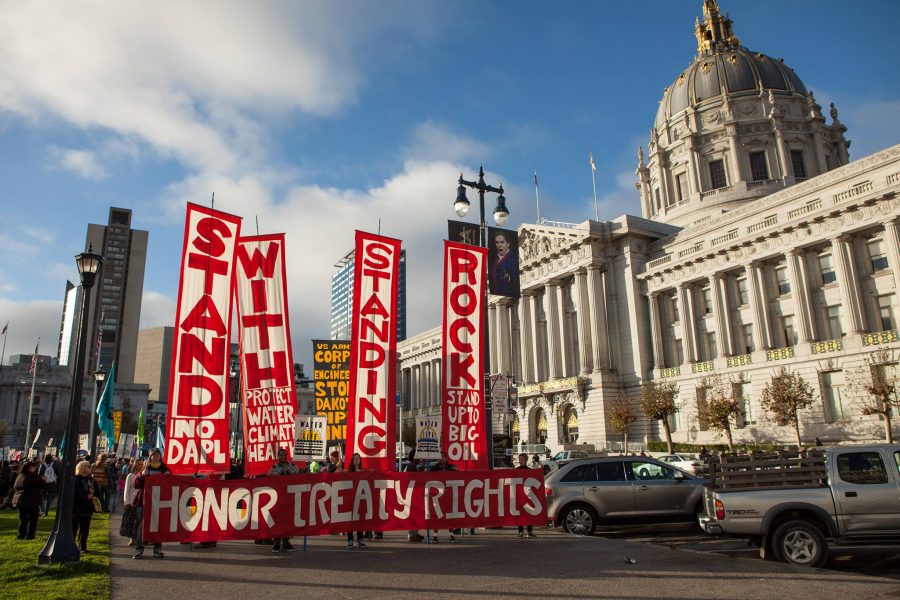OPINION: The Dakota Access Pipeline is history repeating itself
Photo credit/ Funcrunch Photo
By Pax Ahimsa Gethen, CC BY-AS 4.0, via Wikimedia Commons
December 6, 2016
After many months of protests, the Army Corps of Engineers announced that work on the Dakota Access Pipeline has been halted and the pipeline will be rerouted as of Dec. 4.
This announcement came just a week after North Dakota Gov. Jack Dalrymple put out an executive order forcing protestors to leave the site by Dec. 5.
To those who were protesting the pipeline, this is a major success after a long period of silence from the government regarding this issue. However, in that silence lies the heart of the problem: Why wasn’t something done about this earlier?
For years, the United States has been guilty of mistreating Native American tribes across the country. Take, for example, the Indian Civil Rights Act of 1986, which forced tribes who had their own constitutions to adapt similar amendments and statures to the Bill of Rights and the U.S. Constitution.
Another example is the majority of treaties made between federally recognized reservations and the U.S. government prior to 1871. These treaties were made with the intention of giving Native Americans the disadvantage and causing them to lose some of their rights.
The United States has a negative history with their treatment of their Native American citizens. So for something like the Dakota Access Pipeline to occur, it should be no surprise that it took an excessively long period of time for anything to change.
This is not the first time the Standing Rock Sioux Tribe had problems with the federal government. In 1889, Congress reduced the size of their reservation.
Time and time again, whether it be the federal government or a large corporation, reservations and tribes have had to fight for their right to exist in the country.
This is simply unacceptable.
The Native American tribes that still exist in the United States today have gone through an unnecessary amount of struggle just to be able to claim their land and live their lives under their own beliefs. Yet, there continues to be a struggle, whether it is a corporation wanting to run a pipeline through their water supply, allowing outsiders to come and populate their land, or an inability to grow economically due to excessive restrictions thanks to government policies on allotment.
As protesters and the Sioux tribe celebrate the success of rerouting the Dakota Access Pipeline, they must also prepare for the next time their voices need to be heard.
One day, they will be able to live in peace. But that day has a long way to come.
Contact the writer: [email protected]





